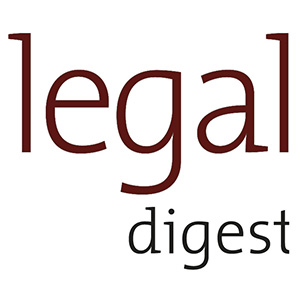Reports of CEQA reform appear to be greatly exaggerated. After sailing through the Senate late last spring, SB 731 – Senate leader Darrell Steinberg's supposedly consensus-based reform of the California Environmental Quality Act – is still in the Assembly. Business-oriented CEQA reformers have reversed their earlier position and come out against it, while labor and environmental groups may also have problems with the bill.
Steinberg took some amendments to the bill on Tuesday – in particular, making it easier to deal with parking issues in infill locations -- but it remains to be seen whether that'll be enough to get the bill out of the Assembly.
Back in May, Steinberg appeared to have a CEQA reform bill in the bag. After Michael Rubio, chair of the Senate Environmental Quality Committee, resigned to work for Chevron, aggressive CEQA reform proposals were dropped and Steinberg came up with a more modest bill that had the support of both CEQA defenders and CEQA reformers. That bill – which, among other things, linked CEQA reform to the implementation of SB 375 – passed the Senate on a unanimous vote in May and seemed headed for Gov. Jerry Brown's desk.
But, surprisingly, the bill got hung up in the Assembly. At the end of July, Assembly Speaker John Perez told the Los Angeles Times, "There's not been the real discussion necessary for such a huge issue." at the end of the session.
Perez's comments came a week after a surprising letter to Steinberg from the CEQA Working Group, a business-oriented coalition of CEQA reformers that had previously supported SB 731. "Unfortunately, as drafted, SB 731 would not advance true CEQA reform and, in fact, could make approval of worthy and responsible projects even more difficult," the letter said. Specifically, the letter called out the following points:
* CEQA reform should "reduce duplicative environmental reviews and reduce meritless lawsuits" against projects that advance the goals of SB 375 and renewable energy projects. The letter was not specific about how this should occur.
* SB 731 should be amended to "require disclosure of any party that has financially contributed to CEQA litigation, similar to campaign finance disclosure laws and court mandates for third parties seeking to file advocacy briefs in lawsuits.
* CEQA plaintiffs should have "skin in the game" and "be required to pay for the lead agency's preparation of the record required for CEQA litigation."
It is not clear precisely why the CEQA Working Group changed course or what the hangup in the Assembly is. In an insightful blog last week, caeconomy.org's Justin Ewers suggested that all sides are now engaged in pushback against the bill but labor in particular has objected to the CEQA streamlining for infill development contained in the bill. Labor sometimes uses CEQA to stall anti-union projects such as Wal-Mart stores, and often sides with environmental justice advocates who see CEQA as a tool to protect low-income communities.
At the heart of the Steinberg bill is a proposal to streamline review of certain issues in transit-rich locations, both by establishing statewide significance thresholds and declaring that certain issues cannot be considered significant impacts. The main change in Tuesday amendments was to move parking from the thresholds category to the no significant impact category. Previously, the bill called on the state to create infill thresholds for noise, transportation and parking, while declaring that no significant impact could be found on asthetics. The new version moves parking from the thresholds to the no significant impact category.
It's not clear whether that change will satisfy the critics, however, since the larger issues appear to deal with the standing and timing of lawsuits. None of the CEQA Working Group's recommendations were included in the revised bill and labor would be unlikely to agree to them in any event.

